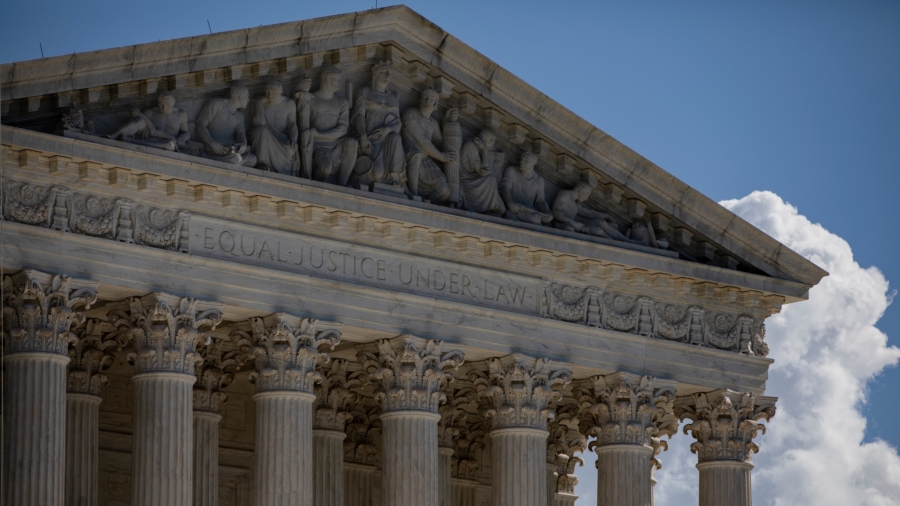The Supreme Court has invited the Biden administration to give input on laws in Florida and Texas that allow users to sue large social media companies over censorship.
NetChoice, a coalition of trade associations representing Twitter, Facebook, Google, and other social media and e-commerce companies, brought the case to challenge the states’ laws.
Both state laws are currently temporarily blocked.
The Supreme Court, which is considering hearing the cases, first invited the U.S. Department of Justice to weigh in, effectively delaying the court’s decision on whether to review the three cases, which have the potential to establish the constitutionality of laws in Texas and Florida.
The cases are disputes between the freedom of expression of individual Americans on the internet against the rights of social media platforms to make editorial decisions about content.
Texas and Florida passed the laws to address perceived censorship of conservative users on social media platforms like Facebook and Twitter. The laws aim to regulate the content moderation policies of these companies.
Those against the laws have argued that content moderation or censorship is needed to stop the spread of allegedly false information and so-called hate speech.
Both state laws were passed in 2021 in response to a rise in criticism from conservative voices about political censorship against them.
The Laws
The law in Texas, HB 20, bans social media platforms such as Facebook and Twitter from censoring speech based on the user’s viewpoint, the viewpoint of another user, or the user’s geographic location in Texas.
NetChoice has sought to appeal a lower court ruling on Sept. 16, 2022 that upheld the Texas law. The U.S. Court of Appeals for the 5th Circuit ruled that Texas HB 20 was constitutional, rejecting, in its words, the “idea that corporations have a freewheeling First Amendment right to censor what people say.”
The Texas law “does not chill speech; if anything, it chills censorship,” the ruling states. The Texas law had previously been blocked by the Supreme Court at an earlier stage of the case.
The Florida law, SB 7072, known as the Stop Social Media Censorship Act, blocks social media platforms from banning political candidates, among other things. On May 23, 2022, the U.S. Court of Appeals for the 11th Circuit struck down much of Florida’s law. The state has since sought to revive it.
When Florida Gov. Ron DeSantis, a Republican, signed the measure, he said its purpose was to fight the “biased silencing” of conservatives’ “freedom of speech” by the “‘big tech’ oligarchs in Silicon Valley.”
NetChoice contends that the First Amendment right of freedom of speech safeguards the ability of social media platforms to exercise editorial discretion in censoring content; it also prohibits the government from compelling them to publish and distribute content against their will or reveal their internal moderation practices.
Without such censorship, the platforms would be overrun with spam, bullying, extremism, and hate speech, according to social media companies.
Florida’s legislation mandates platforms with a minimum user base of 100 million to disclose their censorship policies and apply them consistently among users, regardless of whether or not they would prefer to “host some speech that they might otherwise prefer not to host.” Additionally, the law prohibits the banning of any political candidates.
The Texas law, on the other hand, bars social media companies with a minimum monthly active user base of 50 million from taking any action that may be viewed as “censoring” users based on their “viewpoint.”
Reuters contributed to this report.
From The Epoch Times

